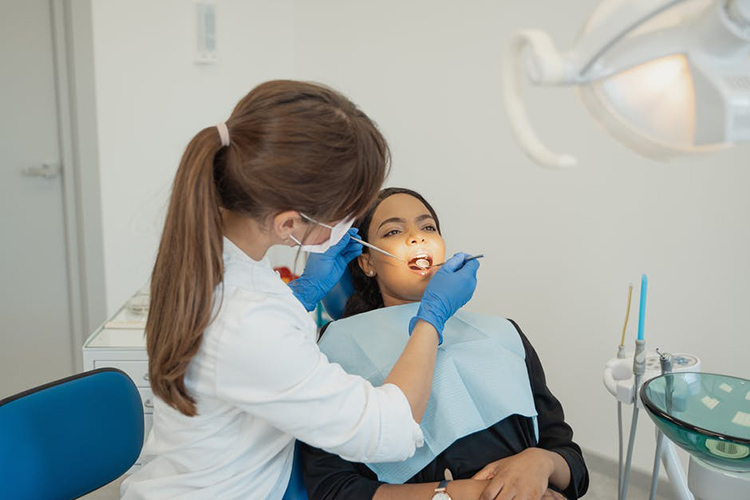If you’ve ever woken up with an aching jaw, you might be experiencing a common dental issue: teeth grinding. Also known as “bruxism,” this condition affects around 8% of the population, and it can be the root cause of everything from headaches to tooth sensitivity.
Knowing the common causes and symptoms of bruxism can help you figure out whether or not this issue is responsible for your pain. Even better, you can try some simple teeth grinding treatments on your own, and your dentist in North Vancouver can help recommend further options. Here’s what you should know about getting relief from teeth grinding.
Teeth Grinding Causes
Unfortunately, there’s no common consensus on why people grind their teeth. Many experts think that it happens at night as a result of involuntary teeth clenching while we sleep. When we’re awake, it’s more likely to happen during moments of tension, such as when we’re anxious, stressed, frustrated, or even in a state of deep focus.
Teeth Grinding Symptoms
If you’re not sure whether or not you’re grinding your teeth—especially because the damage can be invisible at first—there are a few symptoms to look out for.
One early sign is aching muscles in the jaw, face, or neck. Sometimes, this pain may feel like an earache, or it may appear around your temples as a headache. In addition, if you often experience mouth sores from chewing the inside of your cheek, you may have bruxism as well.
Some patients who grind their teeth notice increased tooth sensitivity. This happens as the chewing surfaces of your teeth wear down, affecting the protective enamel that covers your teeth.
More severe signs can include visible wear, including flattened or fractured teeth. Hard grinding can even disrupt your sleep or make audible sounds.
Teeth Grinding Treatments
As you might expect, it can be difficult to stop teeth grinding due to the variety of bruxism causes, many of which are unconscious. However, there are two ways you can seek relief:
Home Remedies
If your teeth grinding is mild, you may be able to try a few home remedies to help. Short-term remedies include changing your sleeping position or trying simple jaw exercises to reduce pain. Long-term remedies may involve addressing any sources of stress in your life, which can contribute to your bruxism.
If home remedies don’t work, or if you’re in serious pain, your dentist may recommend a night guard. This custom-made tool can help prevent further tooth damage while protecting your mouth, and it can also relieve tooth pain over time.
Visit a Dentist in North Vancouver for Treatment
At-home teeth grinding treatments can be a great place to start for pain relief, but they aren’t always enough. If you’ve been dealing with serious pain and sensitivity, visiting a dentist in North Vancouver can ensure your oral health fast.
Whether you’re looking for a confirmation of your condition or you’re ready to relieve your pain with a night guard, our team at IQ Dental is here to help. To reach out with questions or to schedule an appointment, contact us today.







